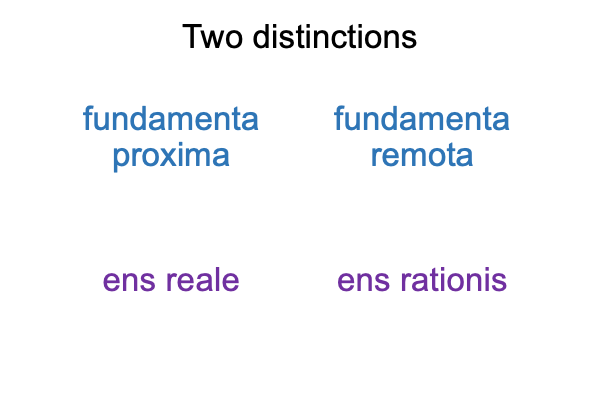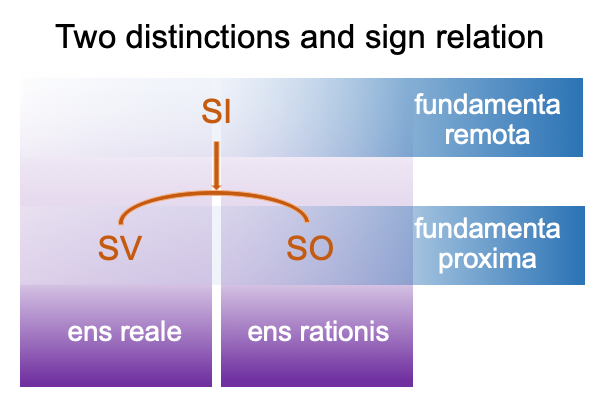0058 The Latin scholastics faced great difficulties in regards to triadic relations, whether they recognized them or not.
First, Aristotle loves distinctions. And Plato loves to transcend distinctions. So, the Latins, who retain Platonic traditions through the loss of the Roman Empire and the rise of Christendom, have some difficulties with Aristotle, who enters the scene through translations of Arabic texts, booty from the Crusades. Saint Thomas Aquinas brings the Aristotelian aspect of Christian philosophy up to speed in regards to reflecting on distinctions.
Second, it is not exactly obvious how to go from distinctions to triadic relations. It’s like the old adage of blind men observing an elephant. Their tactile-based reports describe different creatures. But, the elephant is a single creature.
0059 Here are two distinctions that crop up in Deely’s discussion.

0060 The proximal fundament, what we see (hear, smell, taste or touch) and what we think we see has a contrast, the remote fundament, the person who does the seeing and thinking.
Ens reale is mind-independent being. Ens rationis is mind-dependent being. Ens rationis is also called “a being of reason”.
The scholastics start with these distinctions. So, it is not so obvious how they are going to elucidate a triadic relation, where a sign-vehicle (SV) stands for a sign-object (SO) in regards to a sign-interpretant (SI).
0061 The following figure shows how each element of each distinction views the sign-relation.

0062 Note how the sign-interpretant (SI) spans the gap between ens reale and ens rationis. The reason? The SI is the ens reale that makes ens rationis possible.
0063 I could say that the two distinctions are “protosemiotic”, but that is only looking from the answer to the problem.
Surely, the intellectual journey from protosemiotic to semiotic is not obvious.
The logics of contradiction and non-contradiction apply to secondness. When I hear the word, “reason”, I typically think of this type of logic.
0064 I suspect that the logics of contradiction and non-contradiction apply to fundamenta proxima and to ens reale. I am not so sure about fundamenta remota and ens rationis.
So, calling humans “rational or reason-based animals” does not do the trick.
Neither does calling humans “irrational or superstitious animals”.
